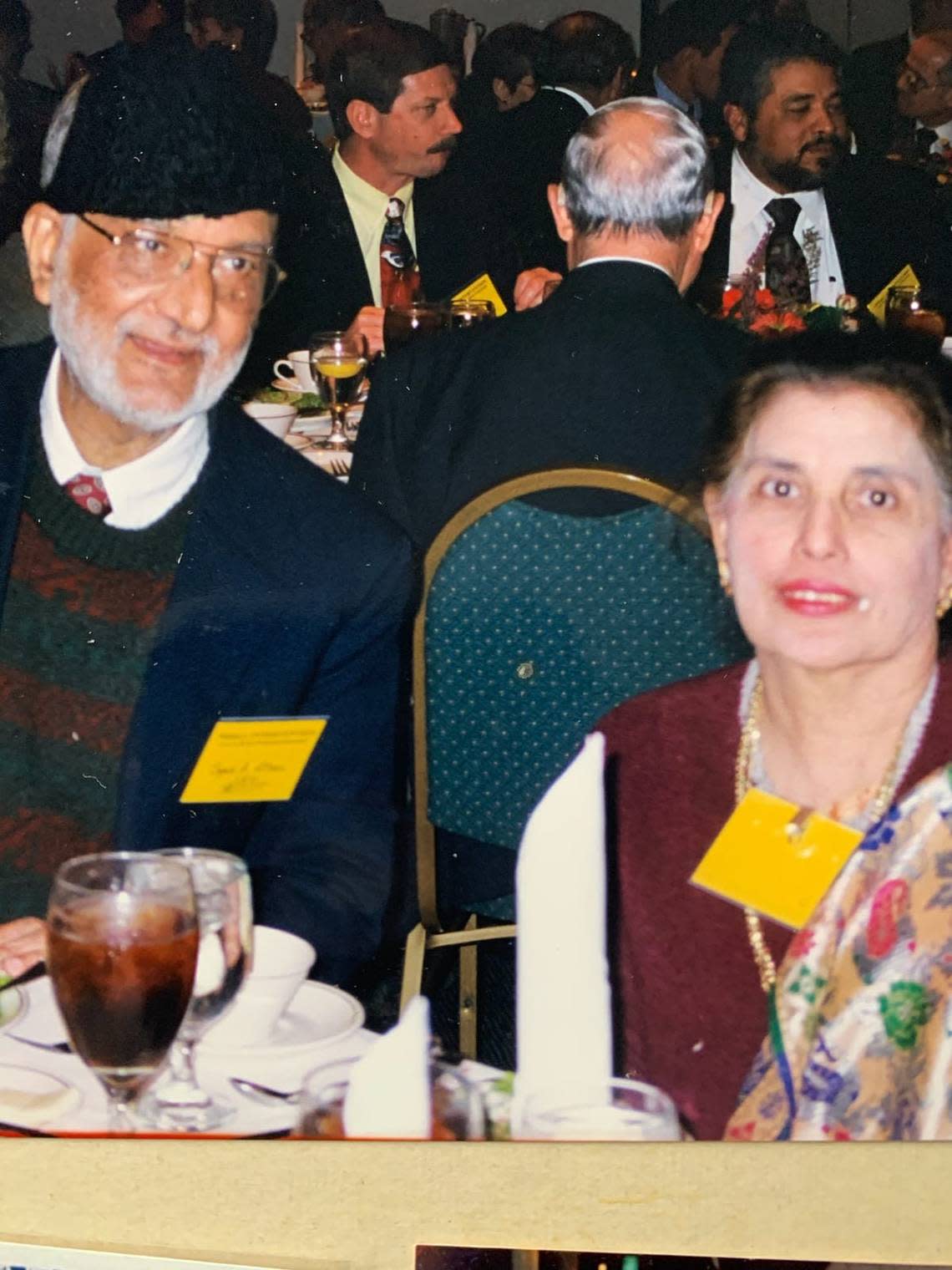An accomplished Pakistani diplomat, this Arlington resident embraced American democracy
After Arlington Latinos and Asians requested the city name streets for their leaders, city staff recommended in the 2018 Collins Street and Pioneer Parkway Design Guidelines the installation of honorary street sign toppers to recognize for Asian, Muslim, and Latino heroes.
To promote a section of Pioneer Parkway that boasted ethnically diverse businesses, the city re-branded the parkway from Center Street to State Highway 360 as International Corridor.
Aftab Siddiqui, a political activist, visited Arlington mosques to discuss name suggestions. They deliberated on “Jerusalem,” “Muhammad,” and “Syed Ahsani” at several community meetings. They choose the latter and submitted signatures to confirm their agreement.
Syed Ali Ahsani, Ahsani’s son, said his father had a desire to see the world. After passing civil service exams, his father joined the Pakistan Foreign Service in 1952. His assignments took him to Cairo, Rome, Kabul, Beirut, and Calcutta. Rising in diplomatic ranks, he served as ambassador to Brazil, Sudan, and Ghana. His international affairs experiences motivated Ahsani to establish the Pakistan Foreign Service Academy, serving as director 1981-1988.
After retiring, he moved to Arlington in 1988 to be closer to his children, who had studied and moved to the United States. His daughter Rumina Ahsani was studying at the University of Texas at Arlington at the time of his arrival. After living in authoritarian countries, he cherished the rights and freedoms the United States offered its citizens. He said, “I feel very excited. America is a great democracy because of the Constitution. It has great laws. It has freedom of press. It is good for the advancement of all people.”

To obtain his medical clearance for U.S. citizenship, he visited Dr. Inayat Lalani, a Fort Worth general surgeon. Lalani, founder of the Muslim Caucus in the Democratic Party, encouraged Ahsani to harness his diplomatic expertise and political skills in local political activism.
On visiting his son in California, Ahsani met Agha Saeed, PhD, founder of the American Muslim Alliance, whose purpose was to provide civic education and leadership training to American Muslims with the goal of electing Muslims to political offices. As president of the of American Muslim Alliance Southwest chapter, Ahsani worked tirelessly to encourage DFW Muslims to learn the American political election process, to vote, and to run for office.
Siddiqui, a Pakistani immigrant, joined the American Muslim Alliance and worked closely with Ahsani and his family to encourage civic involvement at mosques. Despite his former ambassador status, Ahsani worked humbly alongside get-out-the-vote workers, passing out fliers at Muslim gatherings. As an election judge, Ahsani trained Siddiqui to serve in the role.
Siddiqui recalled conservative Muslims initially resisted, fearful they would draw too much attention and exacerbate existing Islamic phobias and stereotypical terrorist images. They also resented that American soldiers were killing Muslims in Iraq. They reasoned that by participating, they would have blood on their hands. Ahsani responded that to create a more positive reception and to impact foreign policies, American Muslims must immerse themselves in American mainstream political waters. He pointed out their federal taxes were supporting American intervention. At Ahsani’s invitation, Republican and Democratic candidates visited mosques to share their positions on issues and to answer questions.
Siddiqui accompanied Ahsani on bridge-building visits to Christian churches and community civil rights conferences, where the ambassador explained Islamic culture and their support of American democracy. They joined the Democratic Party, hosting a booth at the Democratic state convention in Dallas in 1996. The ambassador served as the only North Texas Muslim delegate at the Democratic National Convention in 2000.
From politics to history, Ahsani researched the scientific and scholarly contributions of Muslims during the 800-year conquest of Spain. Dr. Basheer Ahmed, former chief of psychiatry at John Peter Smith Hospital, collaborated with Ahsani when he learned about their mutual historical interests. In 2005, they co-edited with Dilnawaz A. Siddiqui the book “Muslim Contributions to World Civilization.”
Ahmed estimated that 99 percent of non-Muslims and 95 percent of Muslims were unaware of the Muslims’ scientific, philosophical, mathematical, and literary achievements during the so-called Dark Ages. To shed light on these accomplishments and to dispel cave-dwelling Muslim images, Ahmed founded the Institute of Medieval and Post-Medieval Studies in Arlington in 2014 with Ahsani acting as president. Together they presented their historical/scientific findings at national conferences.
Ahmed said Ahsani was an inspiration for him to stay humble regardless of profession and to avoid ivory tower isolation. Ahsani also taught courses as an adjunct professor on international relations and American government at UTA and Tarrant County College.
On March 27, 2021, the City of Arlington dedicated the street sign topper in honor of Ambassador Syed Ahsani, a true representative of international Arlington. The ambassador passed away on July 30, 2014, at the age of 85.
Author Richard J. Gonzales writes and speaks about Fort Worth, national and international Latino history.
